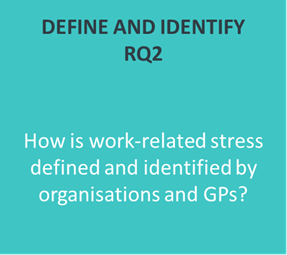
Guest blog by Affinity Health at Work as part of the Project OSCAR team
Stress accounts for almost half of all cases of work-related ill-health and of all working days lost due to illness (HSE, 2023). Deloitte’s mental health report (2024) surmises that mental health concerns cost the UK workforce £51 billion per year, which begs the question, how do we prevent and reduce work-related stress?
This is the question we have been tasked with by the UK Health and Safety Executive (HSE). Project OSCAR (Occupational Stress Consultation and Research) is funded by HSE and led by a collaboration of four organisations: Affinity Health at Work, Institute of Occupational Medicine, Institute of Employment Studies, and SOM.
While there is strong and consistent evidence linking working conditions (often called psychosocial hazards) to outcomes of work-related stress, only 40% of organisations are taking steps to identify the causes of stress in their own workplaces (CIPD, 2023). Also, nearly one in three fit notes are issued citing mental health (NHS Digital, 2024).
Why is this? There is uncertainty around how work-related stress is defined and labelled at work and organisations are unsure what actions should be taken to prevent and reduce stress. When action is taken, obstacles can get in the way of action being effective.
Project OSCAR aims to address three priority questions:
1. How is work-related stress defined and identified by organisations, GPs, and other health professionals?
Many people go straight to their GP for support when experiencing work-related stress (Nicholson, 2018). And though stress, depression and anxiety more generally are often recorded on GP fit notes for long-term sick leave (NHS Digital, 2017), the extent to which these mental health conditions are caused or exacerbated by work is unclear, and less clear is how different stakeholders share, record and act on information regarding work-related stress. By being armed with clarity on how to define and label work-related stress, it will be easier for all stakeholders to take a more consistent approach, allowing us to then focus on ways to prevent and reduce these identified cases of work-related stress, supporting employees.
2. What interventions are effective for preventing and reducing work related stress?
We know quite a lot about interventions that can help people manage existing stress (e.g. mindfulness training (Donaldson-Feilder et al, 2019), cognitive behavioural therapy (Yunus et al, 2018) and resilience training (Joyce et al, 2018). While preventative research is catching up (e.g. Nielsen and Brough, 2023), with so many different causes of work-related stress and so many ways to intervene, which ones are most effective? By understanding which interventions are helpful in which circumstances, employers will be better able to take preventative action – and occupational health and allied health professionals will be able to provide evidence-based advice.
3. What are the barriers and enablers to organisations effectively reducing the risks of work-related stress?
It is all well and good understanding what the research says, but we all know that the reality of organisational life is complex. If this work is to create change, then it is important that these learnings can be applied in practice.
Call to action
We want to hear firsthand from those working in occupational health, human resources, and healthcare to understand the issues you are currently facing and what works well on the ground to tackle work-related stress.
We are gathering existing evidence to understand our three research questions, set out above. This is a significant piece of work, and we will need the help of our community to gain as many perspectives as possible – from practice, policy, and research – to make sure we can learn from all the amazing research and good practice out there.
Have you any relevant evidence? Please go to our Call for Evidence form and send it our way.
Want to be kept up to date and/or be contribute to interviews or focus group discussions? Register your interest here.
Feel free to email us at oscar@affinityhealthatwork.com



Pictured top: the team at Project OSCAR

